Working From Home
Fri 4 Dec 2020, 12- 6 PM
The omnipresence of homeworking has become one of the key features of life in recent months as a consequence of the pandemic. Artists work in makeshift studio spaces at home whilst cooking the tea, caring for family or being confined to a bedroom where they eat, sleep, socialise and ostensibly work – in this context questions of the studio space and practices needs to be reviewed.
As part of this Dirty Practice event we continue to focus on close interconnections between practices, art education and space. We wish to ask to what extend the new situation impacts on opportunities to build communities, give a sense of belonging and allows for the appearance of digital ‘messy spaces’.

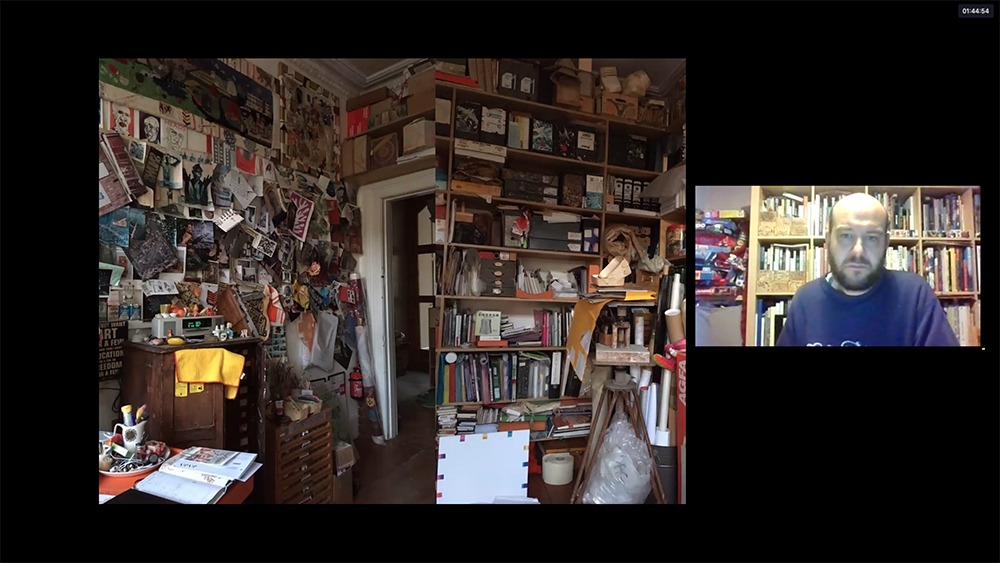
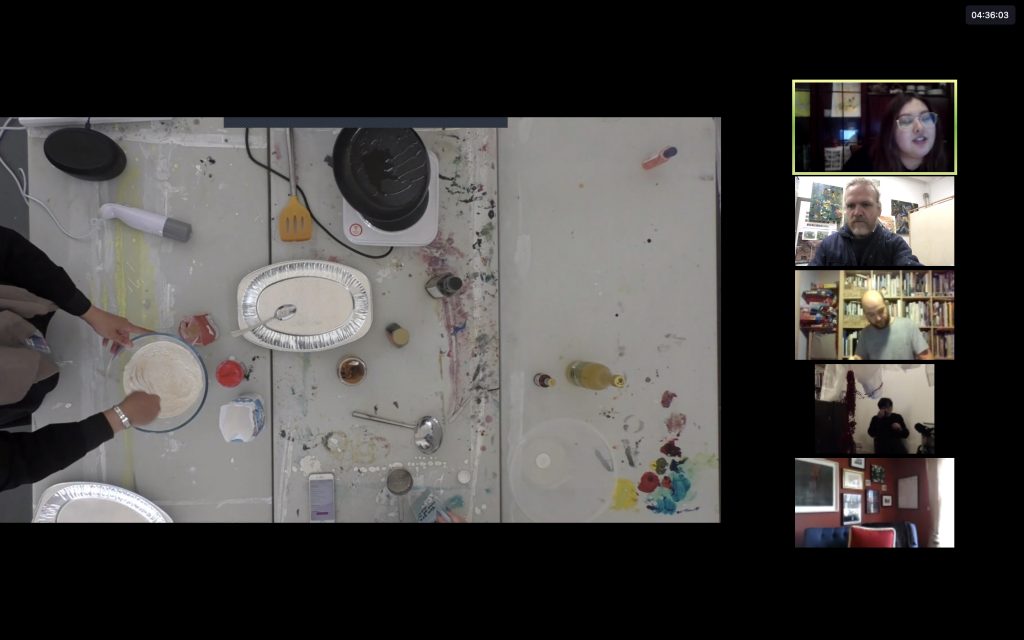
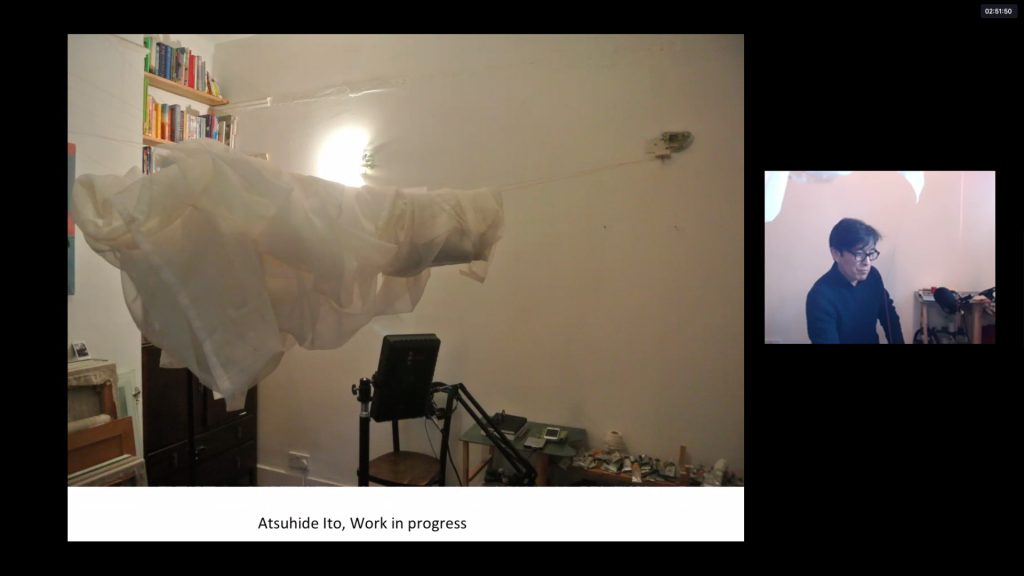
Context:
The focus towards the ‘home’ as new centre of production under confinement, transformed the domestic interior into a ‘center (sic) of the economy of tele-consumption and tele-production.’[1] The working situation from home result in a drastic breach of traditional structures of production and the separation of private and intuitional spaces. Paul B. Preciado states that during the pandemic ‘we are no longer regulated solely by their passage through disciplinary institutions (school, factory, barracks, hospital, etc.)[…]’[2]
As a result of the current pandemic, galleries and art institutions ‘secretly rejoice’ under the use of online viewing spaces and the fact that ‘spaces are sanitized beyond the wildest dreams of any white cube’ [3] Universities have been quick to take up online learning with the often repeated notion – that after all this is over we will maintain some of the online practices learnt. As art schools we have to both warn against this extradition of practice from the institution whilst we begin to understand what ‘blended making’ might be and how practice skills and experiential learning can be delivered in this environment.
While Dirty Practice actively encourages a revision of practices and understanding of ‘messy spaces’, the omnipresence of homeworking, as one of the key features in recent months, changes also the interaction with students in zoom tutorials. Seeing the washing or family photographs in the background during Zoom tutorials, breaches significantly the isolation of the art school, often described as somehow as a ‘zone of exception’.
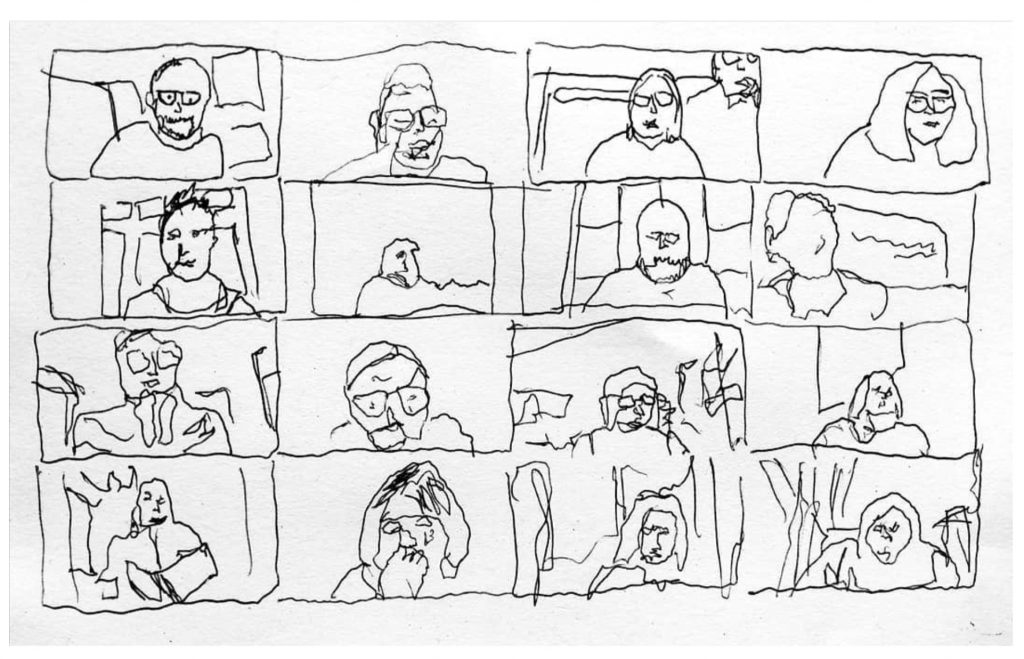
Call for Artists:
To test and explore the potential of ‘zoom’ as a ‘dirty space’ we are proposing a short online residency for one afternoon. The idea is simple, log into our studio from your studio and we will spend the afternoon working together and exploring the potential for the sharing of practice in this context.
Who and how:
Artists, Fine Art students, theorists please sign up by sending an expression of interest outlining your thoughts and the impact on your practice (100 words) by 25 Nov 2020. Please e-mail Christian.Mieves@newcastle.ac.uk and use the subject heading ‘Dirty Practice’.
Please note, the Call for Artists is now closed.
Date: Fri 4 Dec 2020, 12- 6 PM via zoom(To allow a conversation between spaces the number of participants will be limited.)
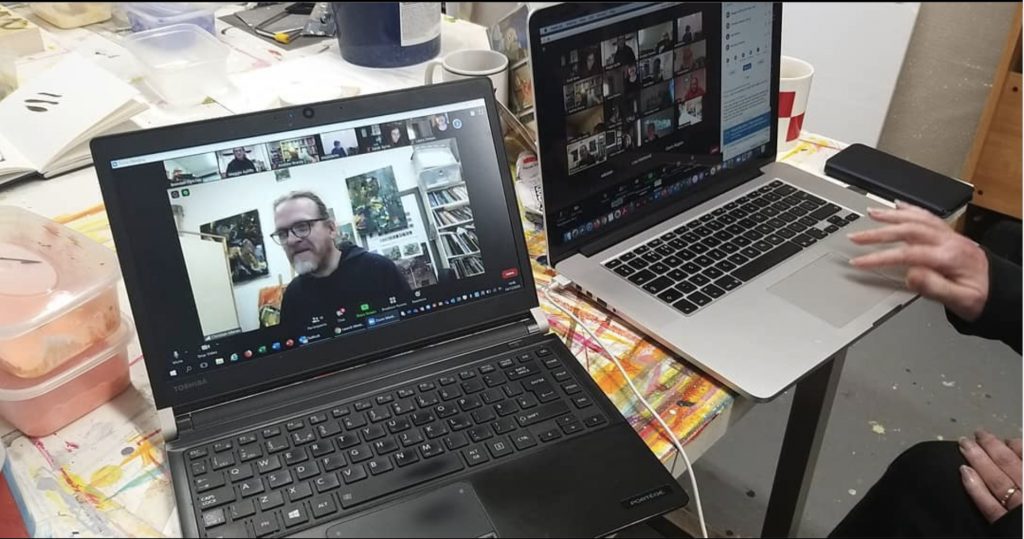
Contact:
Christian Mieves Christian.Mieves@newcastle.ac.uk
Maggie Ayliffe M.C.Ayliffe@wlv.ac.uk
[1] [Artforum: https://www.artforum.com/print/202005/paul-b-preciado-82823 ]
[2] ibid.
[3] [https://www.e-flux.com/journal/109/331513/editorial-navigation-beyond-vision-issue-two/ ]
